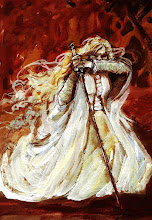QUESTIONS about class? about the readings? about the essay?
PLEASE POST A COMMENT TO THIS ENTRY since my response to your question (via post) might benefit the entire class. Of course, you may send it by email as well:
cstrafaciuiw@gmail.com.
WEEK ONE READING: Please complete the assigned reading as indicated on the syllabus ("Course Overview"), including the added Kreeft pages.
WEEK ONE ESSAY: Please choose and write your response to
ONE of the questions listed below, then
email your essay as an attachment in .doc(x) or .pdf format to Christina
by TUESDAY, January 11th at 11pm.
1. Compare and contrast the moral precepts of the Old and New Testaments. Begin with the Ten Commandments in Exodus 19 and the Beatitudes in Matthew 5: 1-22. What is the relationship between the Law of God as expressed by Moses on Mount Sinai and Jesus in the Sermon on the Mount? Are they compatible? Are there any differences between the two? If so, can you reconcile these differences? What are the similarities?
2. Explain St. Paul's understanding of human freedom as evidenced in the following passages of Scripture:
* Romans 6: 11-23; 7: 2-12; 8:1-5
* Galatians 4:21-31
Your response should include an explanation of how these verses relate to CCC 1744-45.
3. Determine the object, the end, and the circumstances of the widow's actions in Luke 21:1-4 and Judas' actions in John 13:1-30. Then, compare and contrast your findings.
Please remember these GUIDELINES for ESSAYS:
Each week, you will be expected to write an essay that responds to a question and demonstrates your knowledge of the material covered in class. These essays are less formal than typical academic essays in that they do not require secondary research. However, typical stylistic conventions such as grammar, spelling, and usage are still and always important! Essays should be two (2) pages in length. This means four (4) to five (5) completely developed paragraphs, cohesively organized around a solid thesis statement and supporting arguments. FORMAT: Each essay should be double-spaced, using Times New Roman font at 12pt with standard margins (1” top-bottom, 1.25” right-left). No cover page is needed, but your name and the date should appear at the top of the first page. Both form and content will be evaluated.




